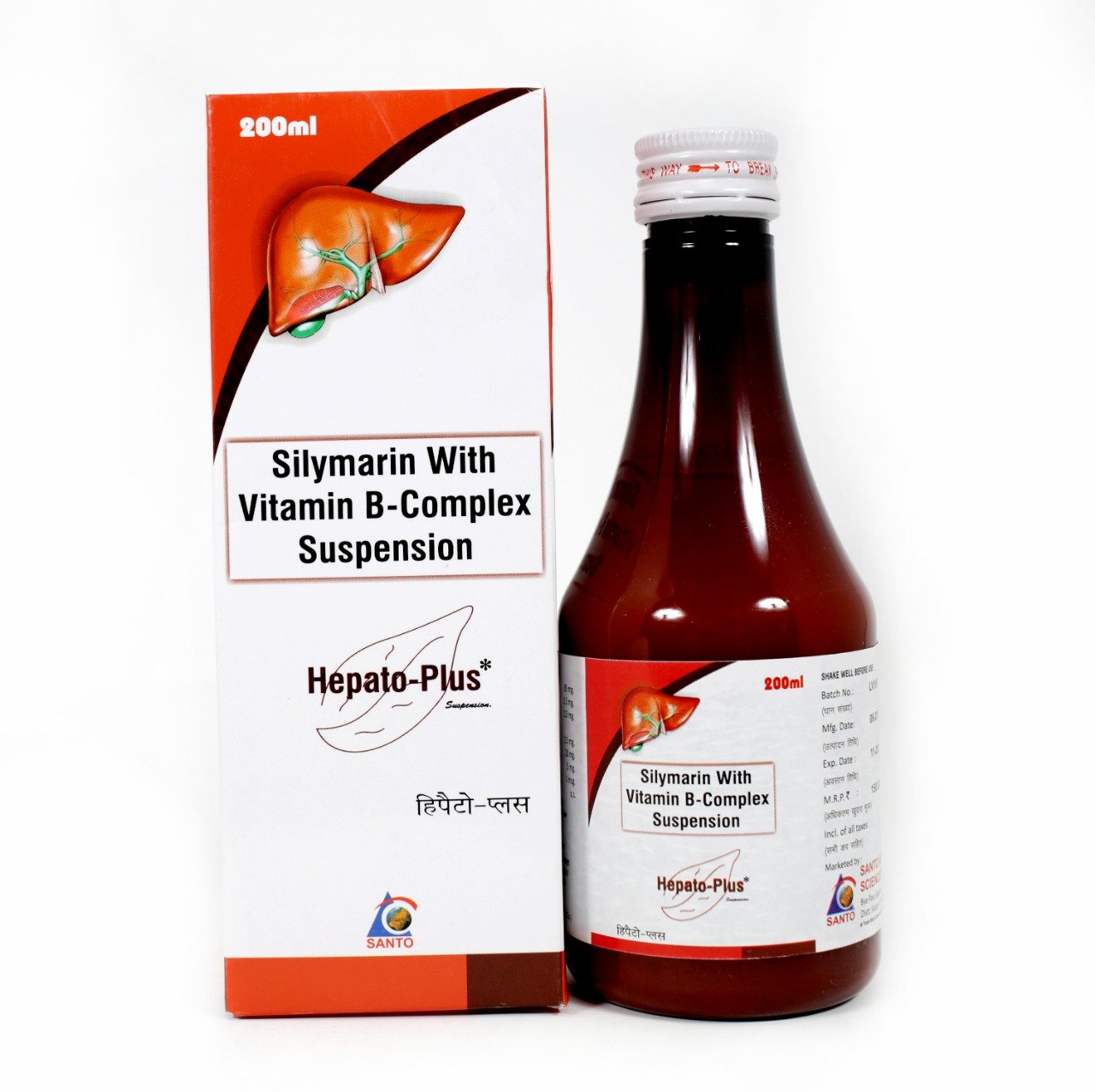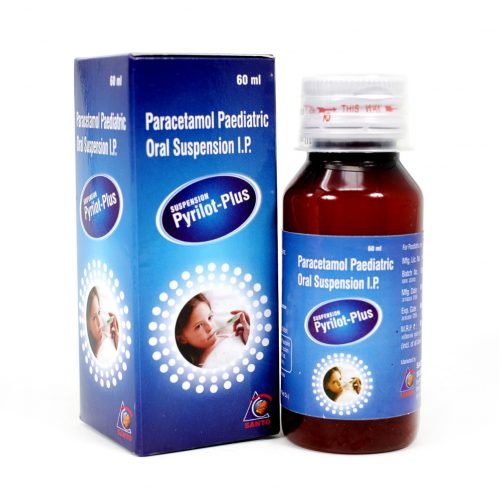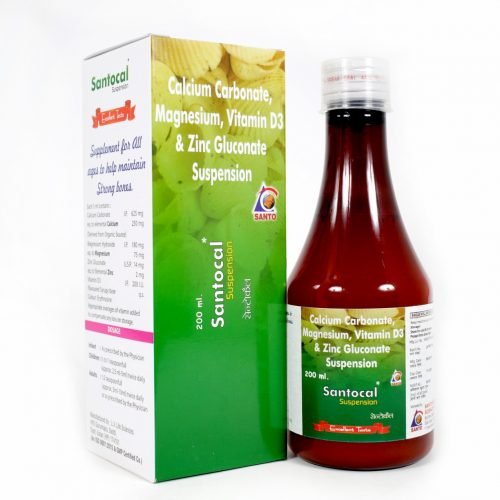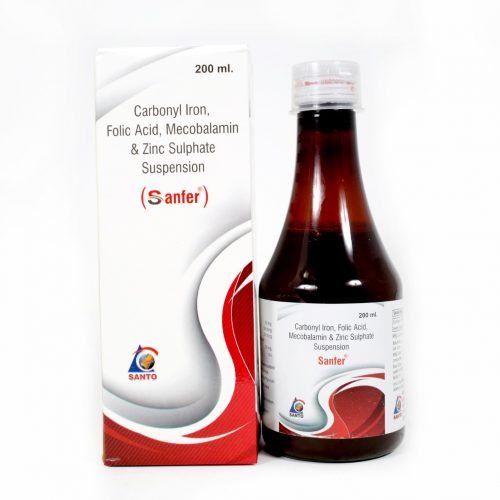- 01792-220191, 09839141955, 06390845955
- SCO No. 2 & 3, Block-B;Office No.-249A; 2nd Floor, Motia Plaza Baddi-173205; Distt. Solan (H.P.)
- Home
- Suspensions
- HEPATO-PLUS (SUSPENSIONS)

HEPATO (SYRUPS)
September 19, 2019
ITK- Z (SHAMPOO)
September 19, 2019HEPATO-PLUS (SUSPENSIONS)
| Brad Name | Hepato-Plus (Suspensions) |
| Composition | Silymarin 35 mg+ Thiamine Hcl 1.5 mg+ Riboflavin 1.5 mg + Pyridoxine hcl 1.5 mg + Niacinamide 20 mg + D- Panthenol 5 mg +Vitamin B12 1 mcg /5ml Suspensions |
Silymarin 35 mg+ Thiamine Hcl 1.5 mg+ Riboflavin 1.5 mg + Pyridoxine hcl 1.5 mg + Niacinamide 20 mg + D- Panthenol 5 mg +Vitamin B12 1 mcg /5ml Suspension
Thiamine is a vitamin, also called vitamin B1. Vitamin B1 is found in many foods including yeast, cereal grains, beans, nuts, and meat. It is often used in combination with other B vitamins, and found in many vitamin B complex products. Vitamin B complexes generally include vitamin B1 (thiamine), vitamin B2 (riboflavin), vitamin B3 (niacin/niacinamide), vitamin B5 (pantothenic acid), vitamin B6 (pyridoxine), vitamin B12 (cyanocobalamin), and folic acid. However, some products do not contain all of these ingredients and some may include others, such as biotin, para-aminobenzoic acid (PABA), choline bitartrate, and inositol.
Side Effects
Thiamine is LIKELY SAFE when taken by mouth in appropriate amounts, although rare allergic reactions and skin irritation have occurred. It is also LIKELY SAFE when given appropriately intravenously (by IV) by a healthcare provider. Thiamine shots are an FDA-approved prescription product.
Thiamine might not properly enter the body in some people who have liver problems, drink a lot of alcohol, or have other conditions.
Uses
- Metabolic disorders. Taking thiamine by mouth helps correct metabolic disorders associated with genetic diseases, including Leigh’s disease, maple syrup urine disease, and others.
- Thiamine deficiency. Taking thiamine by mouth helps prevent and treat thiamine deficiency.
- Brain disorder due to thiamine deficiency (Wernicke-Korsakoff syndrome). Thiamine helps decrease the risk and symptoms of a specific brain disorder called Wernicke-Korsakoff syndrome (WKS). This brain disorder is related to low levels of thiamine (thiamine deficiency) and is often seen in alcoholics. Between 30% and 80% of alcoholics are believed to have thiamine deficiency. Giving thiamine shots seems to help decrease the risk of developing WKS and decrease symptoms of WKS during alcohol withdrawal.
Interactions
We currently have no information for THIAMINE (VITAMIN B1) Interactions.
Doses
BY MOUTH:
- For adults with somewhat low levels of thiamine in their body (mild thiamine deficiency): the usual dose of thiamine is 5-30 mg daily in either a single dose or divided doses for one month. The typical dose for severe deficiency can be up to 300 mg per day.
- For reducing the risk of getting cataracts: a daily dietary intake of approximately 10 mg of thiamine.
As a dietary supplement in adults, 1-2 mg of thiamine per day is commonly used. The daily recommended dietary allowances (RDAs) of thiamine are: Infants 0-6 months, 0.2 mg; infants 7-12 months, 0.3 mg; children 1-3 years, 0.5 mg; children 4-8 years, 0.6 mg; boys 9-13 years, 0.9 mg; men 14 years and older, 1.2 mg; girls 9-13 years, 0.9 mg; women 14-18 years, 1 mg; women over 18 years, 1.1 mg; pregnant women, 1.4 mg; and breast-feeding women, 1.5 mg.
BY INJECTION:
- Healthcare providers give thiamine shots for treating and preventing symptoms of alcohol withdrawal (Wernicke-Korsakoff syndrome).





